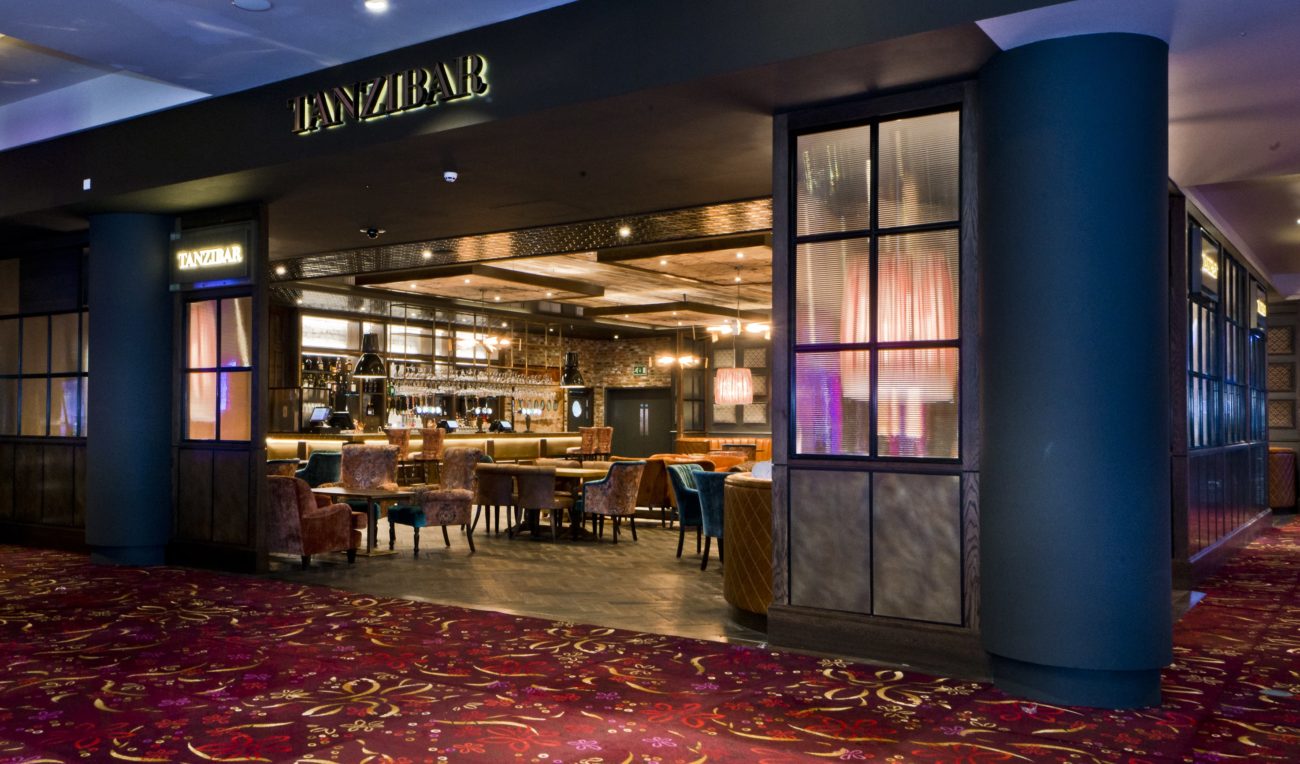From the seafront to Stratford: Aspers’ MD Tony Gibbons

Amid the British casino sector’s travails with Covid-19 lockdowns, Tony Gibbons was appointed managing director of Aspers Group, the casino operator with four properties across England. He began his role in August 2020 – a month that heralded the reopening of casinos across the UK following a shutdown of just under five months.
Key to his taking the job was Aspers’ chief executive Richard Noble, with whom he previously worked at leisure venue and arcade operator the Noble Organisation.
“Richard convinced me that there was an opportunity to help build Aspers Mk II,” he explains. “When I met Damian Aspinall, the owner and chairman, it was obvious there was a real desire to build a deeper, long-term and substantive response to both Covid-19 and the other challenges facing the casino industry.
“To have an opportunity to help shape a business with supportive and committed owners prepared to support decisions often with a wide-reaching impact was the main reason for wanting to be part of this.”
He describes Aspers as a “challenger brand”, and compared to the some of the other industry names dotting Britain’s towns and cities, it is a relative whippersnapper, founded in 2005, with its first property in Newcastle. That’s not to say it doesn’t have pedigree – Damian Aspinall’s father John was a key force in the passage of the 1960 Betting and Gaming Act and opened the Clermont Club in Mayfair in 1962.

He was also the name behind another Mayfair venue, Aspinall’s, that was sold to Crown Resorts in 2011. Aspers, of course, comes from his nickname, and the business is a 50:50 joint venture between the Australian operator and Damian Aspinall.
Gibbons, it could be said, also comes with industry pedigree. A veteran of the retail sector, he began his career in 1983 as a trainee assistant manager at Derby Hippodrome, then owned by Mecca Bingo. “The company culture was one of local decision making and entrepreneurial; promotion was based on talent and results,” he recalls.
Over 17 years with the business, taking in its 1990 acquisition by Rank Group – a company best-known for its cinemas back then – the group “evolved considerably”, he says. “I enjoyed a range of positions including senior operational roles, marketing director for Mecca Bingo and operations director of Rank’s late-night entertainment business.”
That period, he continues, was where he learned everything about customers. “They were highly competitive industries, and I appreciated the importance of good managers and the influence they can have on a business, as well as how easily a good business can be ruined by poor management decisions – usually at a more senior level.”
Having managed Rank Entertainment, at the time the UK’s latest operator of nightclubs, late-night bars and large-scale leisure developments, he was experienced in overseeing adult entertainment businesses. However, the shift to the Noble Organisation then brought him into a wider sector.
The business, which included Brighton Pier among its assets, saw him take charge of a portfolio that included nightclubs, bars, bowling alleys, FECs, bingo, seaside resorts and even the Aberdeen Angus Steakhouse restaurants in central London.
“Finding common ground in all of these was not as difficult as it seems, as the company culture was to concentrate on three key elements: product, service and environment,” he says. “These were seen as the key drivers of the business.
“In each of these we strove to operate to the highest standard and make them the key points of difference. Regular investment to maintain standards was a different approach to the normal corporate one of ‘invest and sweat the shop-fit’ until the next investment.
“At Noble’s we paid attention to the detail and knew our businesses inside out.”
Gibbons goes as far as to draw parallels between customer expectations at Brighton Pier and a casino, arguing they are largely the same. “They both want to feel they are more than a walking £20 note and that we recognise they have a choice where to spend their hard-earned cash.”
“When you start to take guests for granted, that is when they become disillusioned with the brand.”
That focus on providing an elevated experience to customers is what sets physical properties apart from their online counterparts, he continues. While Gibbons has previously worked for Victor Chandler (now BetVictor) and Aspers has an online joint venture with Rank’s Stride Gaming, he says a seamless experience is not the goal.
The experience of playing in a physical space, he explains, should be “very different” to online.
“[If] we allow it to become the same as online then people will not make the additional effort required,” he says. “Casinos should strive to offer a more personal service and to provide a balance between gaming and entertainment which the online sites can never replicate.
“We firmly believe that if we do not offer more fun the guests will migrate to an easier option. How we provide that is the key and guests have different needs and will respond to different stimulus. It is important we recognise it and not have a one-size-fits-all approach. The key will always be how much guests feel they belong.”
And with Aspers’ properties back to full capacity, the focus is very much on the venues, which Gibbons says are performing well since the latest reopening.
At a group level Aspers is performing in line with the industry average, he says, with one site “well ahead” of expectations and one slightly behind. Some guests, he admits, remain wary of Covid-19, and the business is looking to reassure them that they can play safely in the casinos.
Those first to return, he continues, have been the frequent visitors and high-value players, but admissions have grown month-over-month since reopening, with a big jump from August to September. To accelerate this process, the operator will be launching its biggest ever promotion this month, to encourage non-returning guests to revisit, and to attract new visitors to each of the casinos. A new bar, Tanzibar (pictured above), has also been opened at Aspers Stratford
There will be some changes to the visitor experience, Gibbons says. Anticipating that guests would want more personal space, the casino floor layouts were changed during lockdown, to create more space between the slots, tables and electronic roulette terminals. While this may have been a Covid safety measure, Aspers has seen “excellent results” from the changes, to the point that it is now likely to maintain most, if not all of the actions in the long term.
He says wider changes in society, such as the shift to cashless payments, will not have an impact on casinos, at least not until legislation allows properties to offer such payments. Instead, the only impact there was Aspers’ properties almost running out of physical cash on their first weekend of reopening, with so many guests using its ATMs.
And it could be the Gambling Act review is the medium through which that legislative change comes, he says. Considering changes in consumer behaviour and technological progress, reform is “well overdue”, in his view.
“Our guests expect the latest products and an enriched experience when they visit a land-based venue. We need to ensure that legislation enables operators to meet these expectations and do so in a safe, secure environment.”
He is optimistic that the review will ultimately prove beneficial to the land-based sector, arguing that there has been broad support for a “rebalancing” between online and in-person gambling. The casino sector has a good working relationship, meaning it has been able to agree a set of “reasonable asks” for the sector, supported by regular, open dialogue with both the Department of Culture, Media and Sport and the Gambling Commission.
However, when that is likely to happen remains unclear, he admits, noting the recent reshuffle and yet more changes at DCMS is likely to push back the release date of the reform white paper. Aspers was previously anticipating a consultation running until early 2022, with a government response coming next summer, followed by a six-month period for legislation to be finalised before a 2023 implementation.
The gambling industry is on its third minister responsible for gambling in a year, and its second culture secretary. This timeline may therefore be pushed back.
“Our asks are modest,” Gibbons says. “The harmonisation of 1968 Act casinos to offer similar product to that found in a 2005 Act casino, the ability to offer RNG versions of traditional table games on an electronic terminal, the expansion of modern electronic payments methods as we move away from a cash-reliant society, and the ability to offer sports betting in our venues.
“Achieving these would be a fair and positive outcome for the UK casino sector.”
